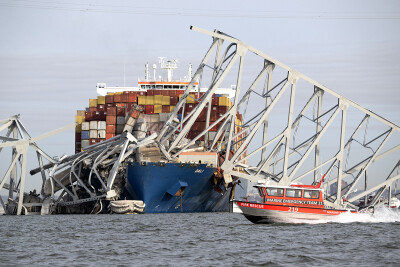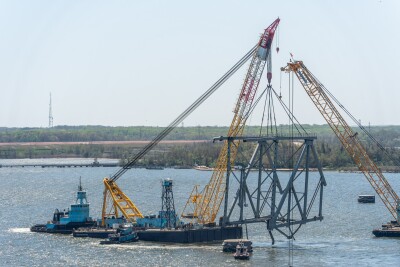Since World War II a 236-mile pipeline route through northern New England has moved oil between the coast of Maine and Montreal with few incidents and little public notice. But over the last couple of years, environmental activists moved to block the export of Canadian tar sands crude oil.
The Portland Pipe Line Corp. and the American Waterways Operators recently pushed back with a Feb. 6 federal lawsuit against the South Portland, Maine, city council’s “Clear Skies Ordinance” that bans the loading of crude oil onto vessels at the company’s pier.
“Our industry has been delivering home heating oil and gasoline to Portland for decades … We’re already regulated by the Coast Guard and other entities, and we don’t think there needs to be more state and local regulation,’ said John A. Harms II, Atlantic region manager for AWO.
The case in U.S. District Court in Portland is significant, at a time when environmental groups in other Northeast states are pressing their local governments and politicians to act against proposed pipelines and energy projects. In the New York-Philadelphia region, the political pressure is aimed at potential pipelines carrying crude oil to refineries and natural gas from the Marcellus shale fields in Pennsylvania.
South Portland’s ordinance violates the constitutional rights of Portland Pipe Line and the Constitution’s commerce clause that limits interference with interstate commerce, according to the plaintiffs. Lawyers and officials with the company and the city did not return calls to comment.
“It’s potentially a very big case,” said Taryn Hallweaver, director of Environment Maine, which is promising to help the city defend its ordinance.
The controversy started in 2012 “when the public became aware of the potential for reversing the pipeline flow,’ Hallweaver said. Initially the local concern was “they would need to burn off excess gases” and produce air emissions while loading the bitumen oil, and the ordinance was aimed at preventing that new use, she said.
Eventually, more activist groups got involved, in a strategic bid to block infrastructure for transporting Canadian crude. With its parent company in Quebec, Portland Pipe Line operates a pair of 18- and 24-inch pipelines between its South Portland facility of 23 tanks with a 3.5-million-bbl. capacity, and a Montreal tank farm.
Documents from the city council’s 2014 deliberations show the intent was to prohibit “the bulk loading of crude oil onto marine tank vessels, which…has never been a traditional land use within the city.” The measure specifically allowed shipments of other petroleum products in the port, but that did not keep AWO from joining the case.
Harms said the South Portland case is the first time his group has waded into this fight. “I can’t say if this will be a precedent,” he said. But it’s clearly seen as a big threat by the industry.




